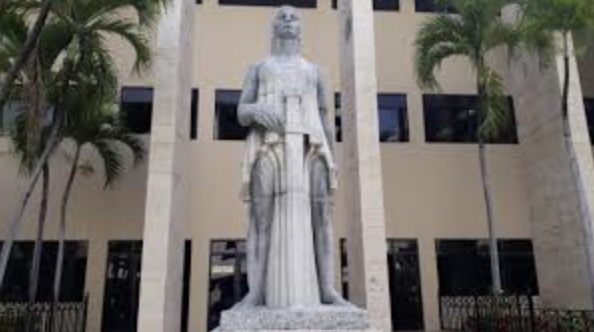
A presiding judge of a National District Appeals Court has requested the Chamber of Accounts audit the Council of the Judiciary, the administrative and disciplinary entity for the Judicial Branch of government. She wants the auditors to look for alleged misuse of funds. She complained that while courts are under disrepair causing major inconveniences and there are no funds for the judicial workers, there is money to pay so that adult children of those in higher-up positions benefit from international insurance, there is an abundance of premium airfares covered by the judicial budget, and there is money to pay for expensive advisors, as reported in Diario Libre.
Ysis Berenice Muñiz Almonte, the presiding judge of the Second Chamber of the Appeals Court of the National District, has requested an “exhaustive audit” from the Chamber of Accounts to the Council of the Judiciary.
Among the irregularities pointed out by judge Muñiz is an international health insurance policy for the adult children of the 17 Supreme Court of Justice judges and Council members, including those of pensioners.
The document, which has already been received by the oversight body and which Diario Libre reports it has had access to, contains as part of the annex the response from the Judicial Branch’s Access to Information Office, which confirms this part of her complaint.
“In this regard, we inform you that the judges of the Supreme Court of Justice, both active and retired, have the benefit of international medical insurance, as well as their family nucleus, including adult children,” reads the response letter to a request for information from the judge, who calls the benefit “illegal.”
It is “illegal to allocate significant sums from the budget to generate a benefit, now direct, in favor of people who have no employment relationship with the Judicial Branch,” she asserts.
Another question raised by the president of the Second Chamber of the Criminal Court of the National District is regarding the minutes of the 13-2024 ordinary session of April 2024, in which the Council of the Judiciary approved the creation of advisory positions for three experts in law, including Flavio Darío Espinal Jacobo, “all with a salary of RD$295,000 per month. The contract “does not appear in the payroll of contracted or permanent personnel of the Judicial Branch, according to the payrolls published on the Transparency Portal of the Judicial Branch,” Muñiz Almonte maintains.
In the minutes of the session, which the magistrate adds in the annexes, the council member Modesto Martínez Mejía, issued a dissenting vote considering the salary of the advisors “exorbitant, since it exceeds the salary of all the judges in the country at the levels of courts of appeal, first instance and peace, even in their maximum scale, which amounts to a ceiling of 289,843.75 (pesos).” In addition to Flavio Darío Espinal, who was legal counsel to the Executive Branch (2016-2020), Doris P. Peña Sánchez and Xenia A. García Cordero were hired.
Judge Ysis Muñiz Almonte also described as an “odious practice” the first-class trips of the Council members, who in just two years spent more than RD$2.1 million in airfares. However, she explains that these trips are not regulated, so there is “no regulation” prohibiting them, but said that they contradict the discourse that “there are no resources to address important issues directly related to the provision of service that should be provided from the courts.” She adds that for more than three years, the salary of judges and administrative employees has not been increased, and that of pensioners has not been indexed to inflation.
In the document sent to the Chamber of Accounts, she notes that neither does the Judicial Branch “fill the vacancies of judges” that occur nationwide. The members of the Council of the Judiciary are five, chaired by the president of the SCJ, Luis Henry Molina, another member of that high court, and three judges representing the courts of first instance, the court, and the justice of peace courts.
In her request for an audit of the Council of the Judiciary, the presiding judge of the Second Chamber of the Criminal Court of the National District also expressed her concern about the risk of possible “total collapse” in an extreme event such as an earthquake of the building of the Criminal and Civil Court, known as the Old Court, located behind the Senate of the Republic and which has a flow of users that exceeds 300 people daily.
In her complaint, she added the conclusion of the study of the structure presented in January 2021 by the director general of Judicial Career Administration accompanied by the engineer Pavel Mora, representative of Epsa-Labco, Consulting Engineers, S.R, which warns of this. “There is a latent risk of partial or total collapse of the building for the condition of extreme events (earthquake). Both the measured resistance of the concrete and the levels of corrosion shown by the reinforcing steel make the capacity of the elements considerably less than that required for extreme earthquake load purposes,” the evaluation stated, which recommended the reconstruction of the building.
Read more in Spanish:
Diario Libre
12 February 2025

